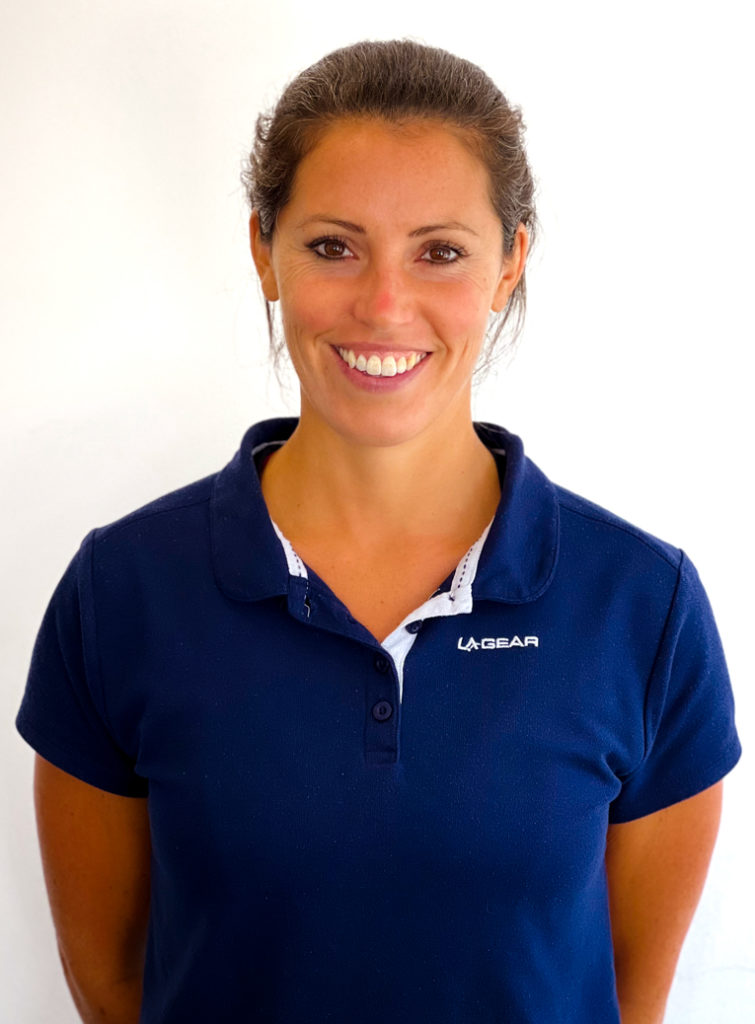Littlehampton Natural Health Centre
Welcome to the Littlehampton Natural Health Centre, a multidisciplinary clinic offering various health treatments, with our specialist Physiotherapist focusing on the treatment of muscular, joint, spinal, and functional conditions, as well as post-operative rehabilitation, injury rehabilitation, and improving sports performance. Our clinic is based in the town of Littlehampton, close proximity to the beach on the south coast of West Sussex. Our practitioners are passionate about promoting natural health and well-being through a positive lifestyle – this includes healthy eating, regular exercise, and regular Physiotherapy check-ups. Not to worry if this doesn’t sound like your current lifestyle, our Physiotherapist is here to help! Our Physiotherapist specialises in Physiotherapy for the whole family, providing Physiotherapy treatment and education on how to maintain a healthy body.
Welcome To Physiotherapy!
When visiting our clinic in Littlehampton you will be greeted with a big smile by our receptionist! We invite you to make yourself feel at home in our waiting area while you wait. We advise all our patients to arrive at least 5 minutes prior to their appointment; this will allow time to settle into the clinic before the start of an appointment.
We have plenty of on-street parking located in close proximity to the clinic, directly out the front of our clinic and many roads surrounding, making access and parking for our patients easy and stress-free.
If it’s your first Physiotherapy appointment, or we haven’t seen you for a few years, we like to spend some time getting to know you, or catching up on your life and health situation. This will include an informal chat, a personal history (including details on any past injuries, current medication, and any related conditions), and of course your reason for visiting the clinic. Once we have all the relevant information, your Physiotherapist will assess your function, muscle tension, range of motion, muscle strength, and overall joint condition, and perform tests to find out the root cause of your symptoms. We will then explain our findings and the necessary stages to help you recover to normal function. If you and your Physiotherapist are both happy to proceed and no further information is required, your first treatment will then be offered at your first appointment.
Our Specialities
Our Physiotherapist doesn’t just specialise in one area, they have expert knowledge and experience in many areas including;
- Rehabilitation
- Post-Operative Care
- Pre-Operative Care
- Soft Tissue Release
- Joint Restriction
- Exercise Prescription
- Stretch Prescription
- Ultrasound Treatment
- Hip Pain or Restriction
- Shoulder Pain or Restriction
- Sports Injury
- Neck Pain
- Lower Back Pain
- Arm Pain
- Leg Pain
- And much more!

What is Physiotherapy?
Physiotherapy is a healthcare profession that works with people to identify and maximise their ability to move and function. Functional movement is a key part of what it means to be healthy. Physiotherapy plays a key role in enabling people to improve their health, well-being, and quality of life.
The aim of physiotherapy is to encourage and restore physical movement and function following an illness, disease, trauma, or surgery. It can also be effective in the treatment of a range of joint, muscle, and nerve conditions. Treatments can include a wide range of techniques, including manual therapy and exercise prescriptions to maintain health for people of all ages. In addition to restorative treatment, physiotherapy can also help to reduce the risk of illness or injury in the future. It takes a holistic approach that involves the patient directly in their own care. This means that the therapist will assess the patient as a whole rather than treating a specific symptom or issue.

Our Patients
There are many reasons why patients come and visit the clinic. Some will originally visit us needing help with issues such as post-operative recovery, injury rehabilitation, frozen shoulder, hip pain or stiffness, knee pain, ankle pain, or arthritis, but once they are well again, many will keep coming back as the Physiotherapy care they receive makes them feel great and keeps them functioning at their best!
At the Littlehampton Natural Health Centre, we have many families visiting the clinic for regular treatments – this includes children, Mum, Dad, Grandma, and Grandad, everyone is welcome!
We are passionate about sports! Not only do we see patients with sports injuries, but also lots of patients who understand how Physiotherapy can improve performance in their chosen sport. Many top athletes have Physiotherapists as part of their teams to help them to maintain their optimum function, injury recovery & improve performance.
Physiotherapy is a mainstream healthcare profession that helps people from all walks of life.
What is the cause of your Symptoms?
The human body is a complex web of muscles, tendons, ligaments, joints, and nerves. When everything works as it should, everything seems effortless and smooth. However, when one part of this web stops working as it should; normal function turns to dysfunction, which in turn leads to pain, stiffness, tightness, loss of mobility, and many other limiting symptoms.
Unlike painkillers and anti-inflammatories which can mask your symptoms, Physiotherapists look to diagnose the main underlying cause of your symptoms and treat these accordingly. To find the cause we take a full case history, and perform a physical, this can include a range of motion testing, muscle strength testing, neurological examination, gait evaluation, and other specific functional tests. Should your Physiotherapist determine that further investigation is necessary, we can easily refer you for diagnostic testing locally. There may be times when we may need to refer you back to your GP for further tests.
Your Physiotherapist will use effective techniques to help restore your function, strength and encourage your body’s own healing mechanisms.

Meet our Physiotherapists
We are a diverse team at Littlehampton Natural Health Centre, offering a fresh approach to health and well-being. We understand that one approach isn’t always what's needed and often a multi-disciplinary treatment plan can be more effective at achieving your long-term health aspirations.
Physiotherapist in Littlehampton - Sally Greenard
Physiotherapist in Littlehampton
Sally graduated from Southampton University with a 1st class honors degree in Physiotherapy in 2009. Since then she has specialised in Musculoskeletal (MSK) Physiotherapy with a particular interest in sports injuries and rehabilitation.
She previously spent 4 years as a physio for Worthing Rugby Club before moving to London to work as a senior MSK Physiotherapist in a substantial NHS department. Here she was involved in the running of the department which included many roles such as writing treatment protocols, providing teaching sessions for staff, and running education forums for local GPs. Sally has a wealth of experience in manual therapy, mobilisations, acupuncture, taping, exercise rehabilitation, and more, treating people of all ages from 10 to 90+ years old.
Sally’s greatest aim is to teach patients how to look after their own bodies, helping them to function at their optimal level at all times. She believes in using a multifaceted approach, giving everyone an individualised treatment program that is unique to their needs and goals.
Physiotherapist in Littlehampton - Amelia Altenburger
Amelia graduated from The University of Chichester with a Bachelor’s degree in Physiotherapy and is registered with the HCPC. As a Physiotherapist Amelia has experience working with patients of all ages, with a variety of conditions. Amelia uses a holistic approach to help her patients, focusing on restoring their overall quality of life.
She has a particular interest in women's health, pelvic floor, and post natal recovery, with a speciality in helping patients with pelvic floor dysfunction and other related conditions. Amelia’s passion for physiotherapy stems from a young age, which sparked a deep interest in understanding the body's healing processes and helping others regain their strength and confidence. Amelia’s approach combines her experience, and academic knowledge, combined with a compassionate attitude. Amelia looks at the whole person and takes all factors into account when creating a personalised treatment plan, aimed at improving her patients' overall well-being.
Outside of her work, Amelia enjoys running and believes in the power of an active lifestyle to promote physical and mental well-being. Committed to professional development, Amelia is dedicated to providing the highest standard of care and support to her patients as they work towards their health and wellness goals.

Common Symptoms
Patients visit Physiotherapists with a variety of symptoms. Here you can find out more about some of the most common symptoms, what their potential causes are and how your Physiotherapist can help.
Here is a list of our most common symptoms...
Arm Pain
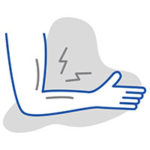
Frozen Shoulder
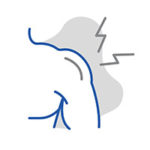
Hip Pain
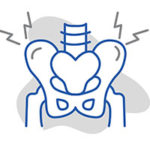
Knee Pain
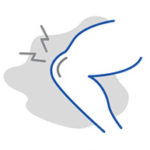
Leg Pain & Weakness
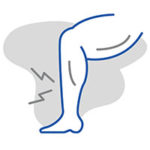
Foot & Ankle Pain
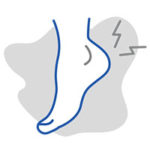

Book Your First Appointment Online
If you are ready to start your journey back to health, you can book your First Physiotherapy Appointment in multiple ways. You can either call our friendly reception team on 01903 734373, or you can click the link below to go to our Online Booking page. The ability to book online isn't just available for new patients, this can also be used to book future Physiotherapy appointments, allowing you the flexibility to book appointments at your leisure and from anywhere.
After booking your appointment, you will be sent 2 emails; the first will simply confirming your appointment is booked. The second will include a link where you can complete your New Patient Intake questionnaire, completing this prior to your appointment will allow your Physiotherapist to review the information before sitting down to consult with you.
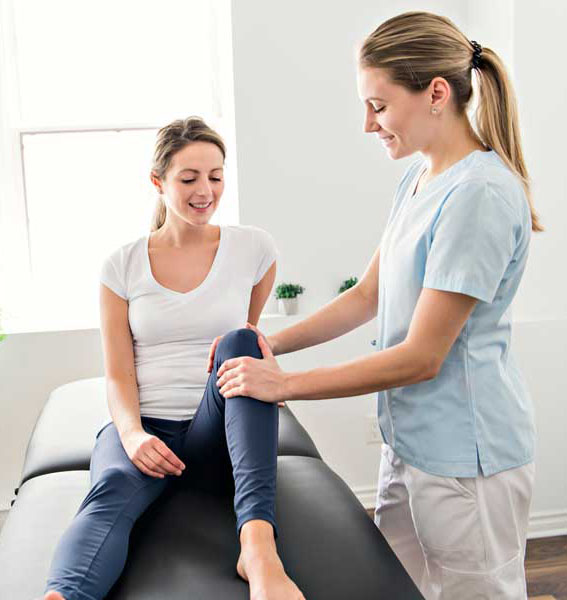


Checklist for New or Returning Patients:
If it is your first time visiting the clinic, or if you haven’t seen us for a few years, we like to spend some time going through your current and previous health and lifestyle, catching up, and ensuring we have a full view of your history. Below are some of the details you will need to complete on your Online Intake Form, or will need to bring along to your New Patient Appointment.
- List of current medications and dosage
- Details of diagnosed conditions (including dates)
- Details of operations and other medical procedures (including dates)
If you are able to complete the Online Intake Form prior to the appointment, this will give your Physiotherapist enough time to review these details prior to your appointment. If not, your Physiotherapist will run through these with you at your appointment and have the opportunity to review them in-depth prior to your next appointment, more information about these initial appointments is discussed below.

First Appointment - Initial Consultation
Your Physiotherapy journey starts here... when you book your first appointment we will email you an online health questionnaire, helping your Physiotherapist to build a complete picture of who you are and why you are coming to see us. When you visit the clinic we will ask you to complete one more form, giving your Physiotherapist as much information about your symptoms and reason for visiting the clinic.
Your Physiotherapist will then consult with you about your symptoms, how they started, and what makes them better or worse, discuss any previous treatment you have tried and ask some specific questions to help them determine their next course of action. Once your Physiotherapist is happy they have all of the information about you and your symptoms, they will then proceed with the physical examination.
The physical examination will often start with an assessment of your range of motion, assessing which movements cause pain or are restricted, testing muscle strength, analysing your muscle tension and tone, and assessing your joint condition; helping your Physiotherapist to determine what is causing your loss of function and symptoms. Physiotherapists are experts in locating the cause of your symptoms and loss of function, using their trained hands to palpate your joints and muscles, and applying a combination of gentle and firm pressure where needed. They will also check for any areas of inflammation or swelling and if needed will perform more advanced physiological and neurological testing.
Following your examination, it may be necessary to refer you for further diagnostic testing to ensure it is both safe and appropriate to continue with care, however, this is on rare occasions when your Physiotherapist suspects there may be something else causing your issues. These further tests, if needed, will then help to form your Physiotherapists rationale for care and ensure you are getting the most appropriate care based on your condition.
Once your Physiotherapist is happy they have all the necessary information to assess your case, they will discuss their initial findings, and if you are both happy they will proceed with your first treatment. This treatment is viewed as part of the examination, as once the Physiotherapist has located the soft tissue and joints which are causing your symptoms, they will then want to feel how your body, function, and symptoms respond to their initial treatment.
After your first treatment, your Physiotherapist will recommend a treatment plan aimed at rehabilitation, restoring your function, and addressing your symptoms.

Report of Findings
Following your examination and first treatment, your Physiotherapist will then recommend the most appropriate treatment plan aimed at rehabilitation, restoring your function, and addressing your symptoms. These treatment plans are different for each patient and typically follow this rough structure;
Phase 1; the first phase of care is typically focused on restoring motion to areas of the body that your Physiotherapist has determined are most dysfunctional, restricted, or have the tightest muscles. This will often include specific at-home stretches and exercises to encourage and maintain optimal joint motion and start to rebuild strength between each of your Physiotherapy treatments. This first phase of care is typically the most intensive phase of care, lasting from 2 to 4 weeks and with treatments 1 to 2 times per week. The exact frequency and length of the first phase are determined on a case-by-case basis and personalised to your recovery plan.
Phase 2; following successful completion of the initial phase of care, you will then move into the second phase, which is focused on further increasing strength and stability to the areas most needed, most importantly the areas which have needed the most amount of work during the first phase, or the areas which are the weakest and most dysfunctional. These will complement the stretches and exercises given in the first phase, helping to increase muscular tone, strength, and stability. This second phase of care is typically at a lesser frequency of treatment, lasting from 2 to 8 weeks and with treatments every 1 to 2 weeks apart. The exact frequency and length of the second phase are determined by how you have responded to the first phase of care and personalised to your recovery plan.
Phase 3; by the end of the second phase of care, we would expect the majority of patients to be well on the path to recovery, experienciung increased flexibility, improved ability, feeling stronger and more stable, and overall experiencing higher levels of well-being. The third phase of care is different for each individual, we typically have two directions from this point; some patients will be discharged at this stage, with either your Physiotherapist or yourself feeling like they have achieved everything you wanted. For those not continuing treatment, we still suggest a continuation of regular stretching and strengthening exercises to maintain your progress. In some cases, a maintenance schedule of care can be recommended, aimed at maintaining your motion and function over a longer period of time. This can be important in cases where we have found evidence of joint degeneration or chronic injury, as these areas can be prone to stiffening and becoming dysfunctional far quicker, and can be harder to self-manage through only stretches and exercises. At the end of your second phase of care, your Physiotherapist will consult with you on all options, allowing you to make an informed decision on the best path forwards for yourself.

What Does Treatment Involve?
Physiotherapy treatment can involve many different forms of care. For the most part, treatment centres around joint mobilisation, soft tissue release, stretch and exercise prescription, taping, ultrasound therapy, and joint manipulation aimed at restoring optimal function by increasing soft tissue flexibility, increasing motion, and decompressing your joints, allowing your body to heal and restore overall function.
Patients visit Physiotherapists for many different reasons and with varied symptoms. Common reasons people visit Physiotherapists include (but are not limited to) feeling restricted in movement, pain or discomfort, injury, fall, post-operative rehabilitation, tight muscles, feeling imbalanced, and frozen shoulder, among many others.
Physiotherapy isn’t only useful for acute or chronic conditions; Physiotherapists can also help prevent problems by pinpointing potential sources of pain before they develop further. Prevention is always better than the cure, so maintaining your body's movement is key to a healthy and mobile body in the long term.
Physiotherapists do not only focus on treating the symptomatic area but use a combination of soft-tissue and joint manipulation techniques to help rebalance the body, improve joint motion, and increase blood flow, whilst increasing overall strength and flexibility. Physiotherapy wants all systems in the body to work together, providing overall good health and well-being. At our clinic in Littlehampton, our Physiotherapists treat a variety of symptoms.
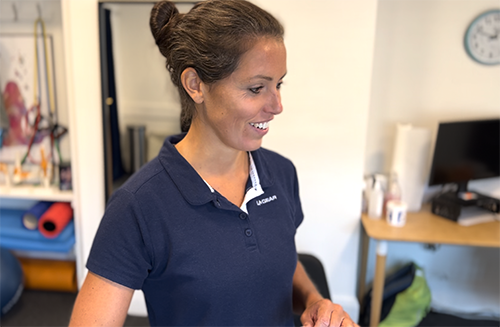
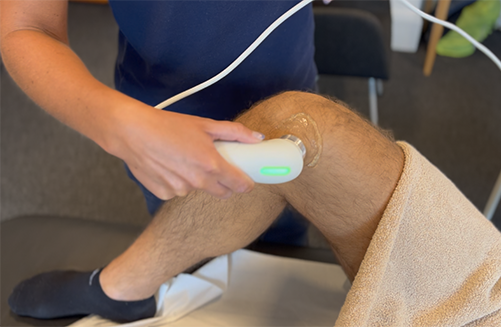

Physiotherapy Techniques offered at the clinic
Manual Therapy
Manual therapy is a wide-scope practice that includes joint mobilisation and manipulation, to help treat soft tissues and joint structures, increase range of motion, reduce pain, reduce soft tissue inflammation, relax the joint structures, encourage soft tissue repair and improve overall function.
Soft Tissue Therapy
Soft tissue therapy includes various massage and stretching techniques designed to release muscle tension, ease joint restriction, encourage normal joint motion, encourage better muscle activation, improve blood flow, help lymph drainage and allow the body to return to normal function.
Taping
Taping is a technique whereby a specialist tape is applied directly to the skin, helping to encourage and maintain a stable position of bones and muscles during joint and soft tissue recovery.
Acupuncture
Acupuncture can be a great help for releasing overly tight and sensitive muscles, especially when they are too tender for the pressure of the massage. Most will barely feel the needles but notice the difference almost immediately. Acupuncture is typically used alongside other soft tissue and manual therapies. Only Sally is currently available to offer Acupuncture.
Exercise Rehabilitation
Our team has a wealth of varying rehabilitative stretches and exercises designed to help support your body back to normal function. She will offer you a personalised plan for your unique situation, giving you variations and increasing intensity as required throughout your recovery journey.
Ultrasound Treatment
Ultrasound treatment helps promote tissue healing and reduces inflammation at a cellular level. An ultrasound machine creates vibrational waves which, when they enter the ski,n cause micro-vibrations in the cells, improving local blood flow, reducing inflammation, improving tissue healing, and reducing pain.

FREE Assessment
If you are unsure whether Physiotherapy is the right option for you, we would like to invite you to attend a FREE Assessment. This is an opportunity for you to come and consult with our Physiotherapist at NO charge. What does the FREE Assessment entail and how could it help you?
- Intake Form - prior to the appointment we are going to ask you to complete a new patient intake form, this will provide your Physiotherapist with your health and lifestyle background, allowing them to build a complete picture of your health.
- Primary Complaint Form - this will be completed at the clinic before your appointment, this form focuses on your symptoms and reason for visiting the clinic. It will ask questions about where your symptoms are, what they feel like, when and how they started, and other relevant questions.
- Consultation - this is where your Physiotherapist will discuss your symptoms, and ask leading questions which will help them to gain all relevant and required information to determine the best and most appropriate course of action.
- Examination - after your Physiotherapist has all of the information they require, they will then perform a brief examination to assess your range of motion, muscle tension, and function and try to determine which areas are causing your symptoms.
- Explanation of Findings - after your Physiotherapist has consulted with you and examined your body, they will then explain their initial findings and what they recommend next.
Book Your FREE Assessment
To book this FREE Assessment appointment, please either call us at 01903 734373, or you can Book Online by either clicking the link below or following the steps on this page.

What's Next?
If after your consultation and examination, your Physiotherapist is satisfied that they are able to help you and you would like to start your recovery journey, they will then explain the next stages. This could include a more thorough examination of your body, or any need to refer for further testing. Once they have all the information required, they will look to provide your first treatment. If you do decide to proceed with treatment or any diagnostic testing, these will be chargeable and any costs will be discussed fully with you prior to proceeding.
To book this FREE Assessment appointment, please either call us at 01903 734373, or you can Book Online by either clicking the link below or following the steps on this page.

The Reception staff - Carly, Lana and Nancy are very helpful and friendly too.
This has been my first experience of visiting a chiropractor and my I was put totally at ease and everything was explained well before procedure took place.
Frequently Asked Questions
Physiotherapy is a style of manual therapy that aims to rehabilitate injured and dysfunctional joints. Its methods encourage optimum mobility and stability of joints, keeping soft tissue loose but supportive and educating at every step. Physiotherapy includes a broad range of techniques, each with its own role in helping aid your recovery and improving your comfort. No. We view every patient on an individual basis and formulate treatment plans to suit them. On some visits, there may only be one or two areas that require treatment; however, sometimes there may be many areas and other parts of the body that may require attention. We recommend that you preferably wear comfortable, loose-fitting clothing. Please keep in mind that your Physiotherapist will need to visually assess your muscle tension, joint movement, and function, and will possibly need to move various areas of the body; thus these areas will need to be visible and assessable. Treatment will often include various styles of mobilisation and massage at the site of injury, which will need to be exposed and accessible during treatment. Physiotherapists have to complete a 3-year Batchelor of Science Degree in Physiotherapy. Over the course of this degree, they study human anatomy, physiology, neurology, pathology, rehabilitation, differential diagnosis, patient assessment, and exercise & stretch prescription. Over the three years, Physiotherapists develop their practical skills working on patient assessment, physical screening, and safe, effective treatment. Once qualified, the learning doesn’t stop, with Physiotherapists completing extensive Continuing Professional Development, which includes further training courses, research, and many other learning activities. No, there are vast differences between Physiotherapy and Sports Massage. Physiotherapists receive degree-level training and are able to assess and diagnose issues with much more accuracy. Although Physiotherapy does utilise massage techniques when required to help aid in a patient’s recovery, however, the whole treatment offers far more than a standard Sports Massage is able to provide. Yes. Your Physiotherapist has completed over 3 years of training and has many years of experience in practice. Physiotherapists are experts in assessing and correcting dysfunctional and injured soft tissue and joint issues. Physiotherapists also have to complete regular Continual Professional Development to keep up to date with the latest research and techniques.

What is an Physiotherapy treatment like?
Effective Physiotherapy Treatment
Physiotherapy aims to restore optimum movement to the joints of the body, helping to improve overall function and mobility. When someone is affected by injury, illness, or disability, Physiotherapists can help provide treatment through manipulation, mobilisation, soft tissue therapy, exercises & stretches, manual therapy, education, and advice.
What is Physiotherapy?
Your First Physiotherapy Appointment
Physiotherapy Techniques
Manual Therapy is a wide-scope practice that includes joint mobilisation and manipulation, to help treat soft tissues and joint structures, increase range of motion, reduce pain, reduce soft tissue inflammation, relax the joint structures, encourage soft tissue repair and improve overall function.
Soft Tissue Therapy includes various massage and stretching techniques designed to ease joint tension, encourage normal movement, improve blood flow, help lymph drainage and allow the body to return to normal function.
Taping is a technique whereby a specialist tape is applied directly to the skin, helping to encourage and maintain a stable position of bones and muscles during joint and soft tissue recovery.
Acupuncture can be a great help for releasing overly tight and sensitive muscles, especially when they are too tender for the pressure of the massage. Most will barely feel the needles but notice the difference almost immediately. Acupuncture is typically used alongside other soft tissue and manual therapies.
Pre-habilitation is a proactive approach to avoiding pain and injury. It's as simple as an additional exercise, or range of motion exercise that is done to ensure that an injury does not occur. This refers to improving your functional capacity through increased physical activity before an anticipated surgery.
Exercise Rehabilitation is what Physiotherapists specialise in. Our Physiotherapist has a wealth of varying rehabilitative stretches and exercises designed to help support your body back to normal function.
Ultrasound Therapy treatment helps promote tissue healing and reduces inflammation at a cellular level. An ultrasound machine creates vibrational waves which when they enter the skin cause micro-vibrations in the cells, improving local blood flow, reducing inflammation, improving tissue healing, and reducing pain.
For most patients manual care is just one part of the care plan, we also provide education, exercises, and stretches to empower you to help yourself!
If you’re unsure whether Physiotherapy is the right option for you please come in for a FREE Assessment. To book this FREE Assessment, please either call us at 01903 734373, or you can Book Online by either clicking the link below or following the steps on this page.
Book Your FREE Assessment Call To Book - 01903 734373
Look forward to seeing you soon!
- Littlehampton Natural Health Centre
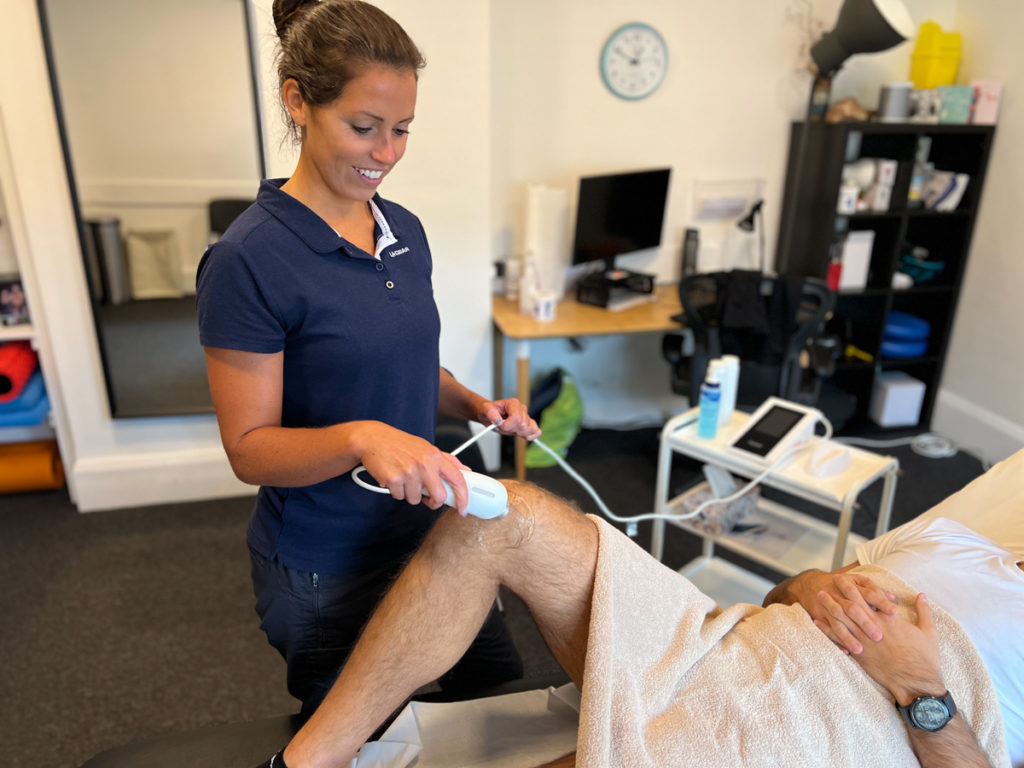

Find Us
Conveniantly Located in Littlehampton, West Sussex

simply click the link below and check availability.

